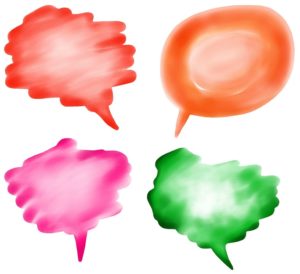Americans need to become smarter about weighing the claims of leaders who are willing to trade accuracy for certainty.
German academic T. W. Adorno was the lead researcher of the first major analysis of social conditions that give rise to populations overly-enamored with authority figures.1 The researchers, some of whom had escaped from Europe at the start of World War II, traced the origins of a multitude of personality traits, including anti-Semitism, “susceptibility to antidemocratic propaganda,” ethnocentrism (judging others by one’s own values), and predispositions toward fascism. The rise of the Nazi Party and its wide acceptance even among well-educated Germans was the puzzle they wanted to solve. Are certain kinds of citizens overly susceptible to appeals based on authority, especially “official” sources? Are some types of audiences too willing to ignore the natural ambiguities of everyday life in favor of the rigid ideological certainties of a demagogue (i.e., Hitler’s stereotypes of Jewish “failings”)? And what psychological needs are satisfied when total allegiance is given to such a leader?
One product of their work was a paper and pencil questionnaire called the F-Scale inventory probing for signs of “authoritarian submission” and “uncritical attitudes toward idealized moral authorities.” It consisted of claims, such as the ones listed below, to which a respondent would agree or disagree.
-
Obedience and respect for authority are the most important virtues children should learn.
-
Every person should have complete faith in some supernatural power whose decisions will be obeyed without question.
-
What this country needs most, more than laws and political programs, are a few courageous, tireless, devoted leaders in whom the people can put their faith.
Positive responses to these and similar statements were identified as likely authoritarians.
![]()
Authoritarian leaders typically overreach their formal powers, distrust the press, and incite citizens against alleged internal enemies.
The researchers found that anti-Semitism, rigidity, ethnocentrism, undue respect for power, and other traits tended to cluster within many of the same people. They theorized that the clustering was tied to styles of family life. They also learned that authoritarianism can be identified in segments of almost any population. Some people may be psychologically hardwired to seek a “place” in a clearly defined social order led by a dominating leader. It also seems clear that many authoritarians–who can be followers or leaders–want to take ambiguities and uncertainties out of their lives. They prefer simple answers to complex problems. As with Adolph Hitler and many others since, authoritarian leaders typically overreach their formal powers, distrust the press, and incite citizens against alleged internal enemies.
The recently concluded political campaign is a reminder that many among us also want simple and magical answers to entrenched problems: all the better if the explanations include scapegoating others. We have lived through a seemingly endless number of false alternate narratives told and retold about stolen elections, pedophile Washington elites, dead voters who managed to cast a ballot, and all the rest. Presently the political right simmers with many of these fears, as us evident from the compliant silence on wild fantasies expressed by Trump and some of his staff. Four more years from this puffed-up leader might have been too much for our unexpectedly frail constitution.
Not all authoritarians are on the right. Any number of countries ruled by populist leaders can fall victim to the same patterns. Wherever they come from, they are the enemies of democracy and the values of an open society. As for us, Americans need to get smarter about weighing the claims of leaders who are willing to trade accuracy for certainty.
By the way, you probably noticed that the “F” in the F-Scale Inventory stands for fascism.
_________________
1The Authoritarian Personality. New York: Harper and Row, 1950.
![]()

